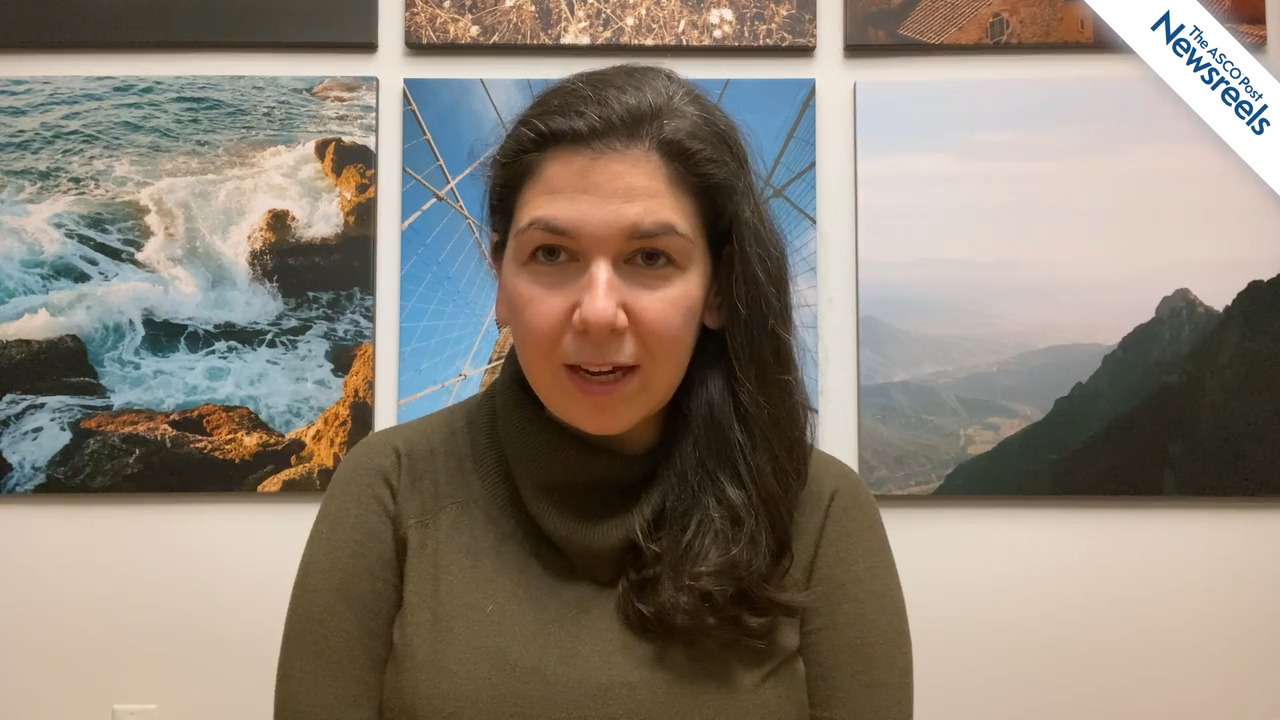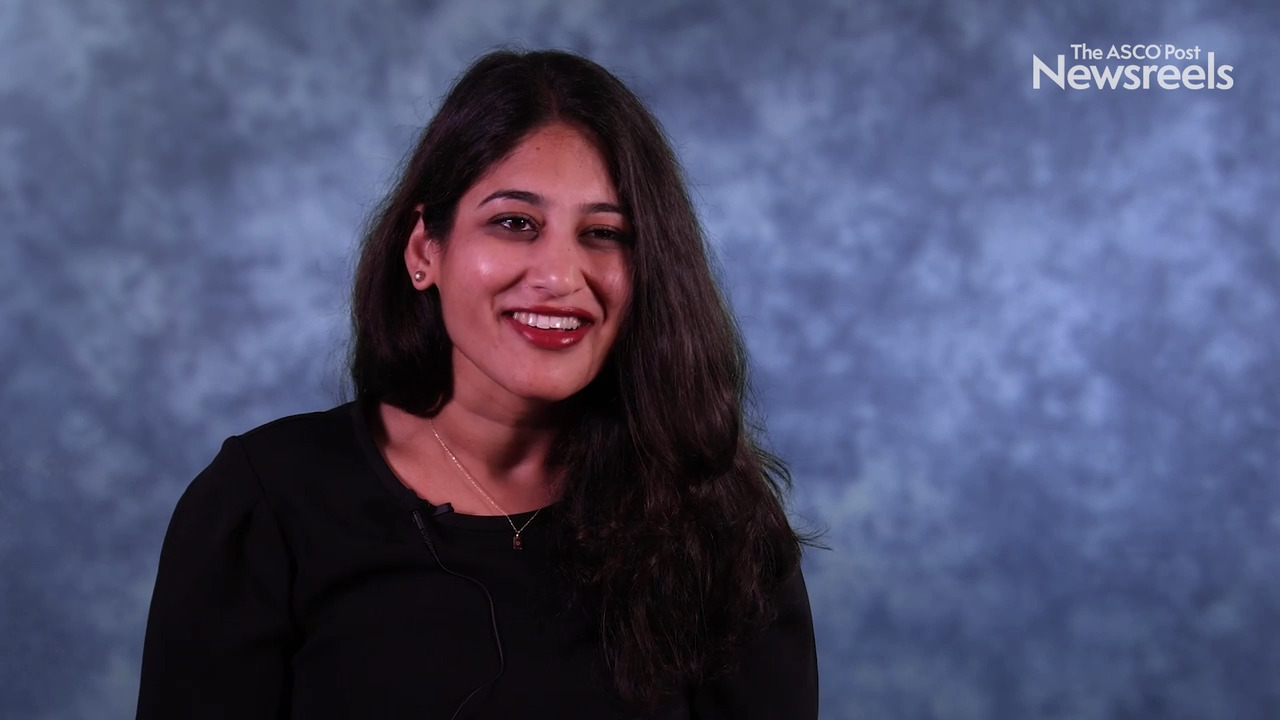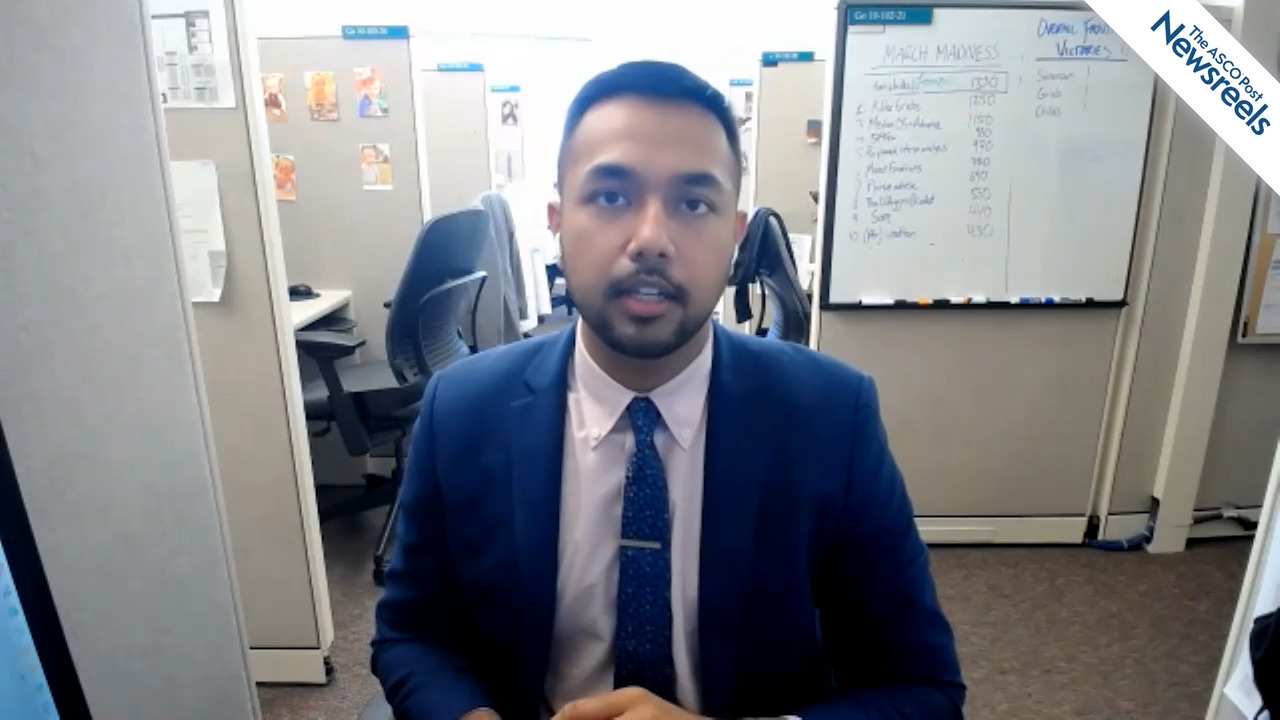Tina Shih, PhD, on Trends in Total and Out-of-Pocket Costs of Cancer Care
2021 ASCO Quality Care Symposium
Tina Shih, PhD, of The University of Texas MD Anderson Cancer Center, discusses the rising cost-sharing requirement from private insurance, which has worsened the financial burden for patients with cancer. She believes that cost-containment policies alone may not be enough to ease this hardship.
The ASCO Post Staff
Morgan R.L. Lichtenstein, MD, of Columbia University Medical Center, discusses a single-center prospective study examining the complex relationship between time to oral oncolytic receipt and clinical or process-related factors, such as prior authorization, diagnosis, and insurance type.
The ASCO Post Staff
Benjamin W. Corn, MD, of Shaare Zedek Medical Center in Jerusalem, discusses hope: what it takes for hope to thrive; how he and his colleagues are helping patients and providers become more hopeful through workshops; and his collaboration with the Southwest Oncology Group to aid patients, through hopefulness, to better adhere to treatment regimens.
The ASCO Post Staff
Divya Gupta, MD, of the Stanford Cancer Center, discusses an intervention utilizing a computer model and lay care coaches to improve advance care planning conversations with patients who have metastatic cancer. The study, Dr. Gupta reports, showed a trend toward less intensive care for patients at the end of life.
The ASCO Post Staff
Aakash Desai, MPH, MD, of the Mayo Clinic in Rochester, Minnesota, talks about the urgent need for drug pricing reform, given the average expenditure of Medicare part D, and the ultimate out-of-pocket costs for patients with cancer. The promise of precision oncology will fail, says Dr. Desai, if we fail to bring the right drugs to the right patient at the right time, with the right price.
The ASCO Post Staff
Divya A. Parikh, MD, of Stanford University School of Medicine, discusses findings that suggest an evidence-based tool, the Serious Illness Conversation Guide, may engage patients with metastatic or recurrent urologic cancer in goals-of-care conversations, potentially resulting in an increase of documentation of their goals in the electronic medical record.





